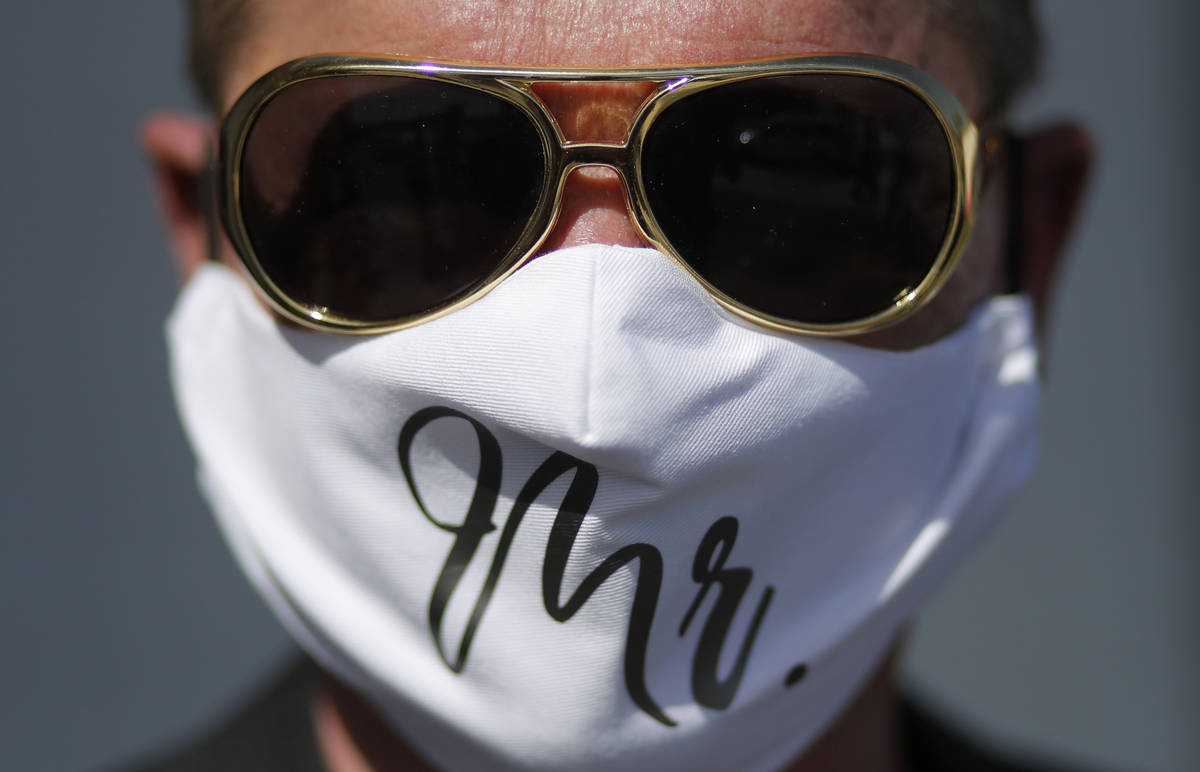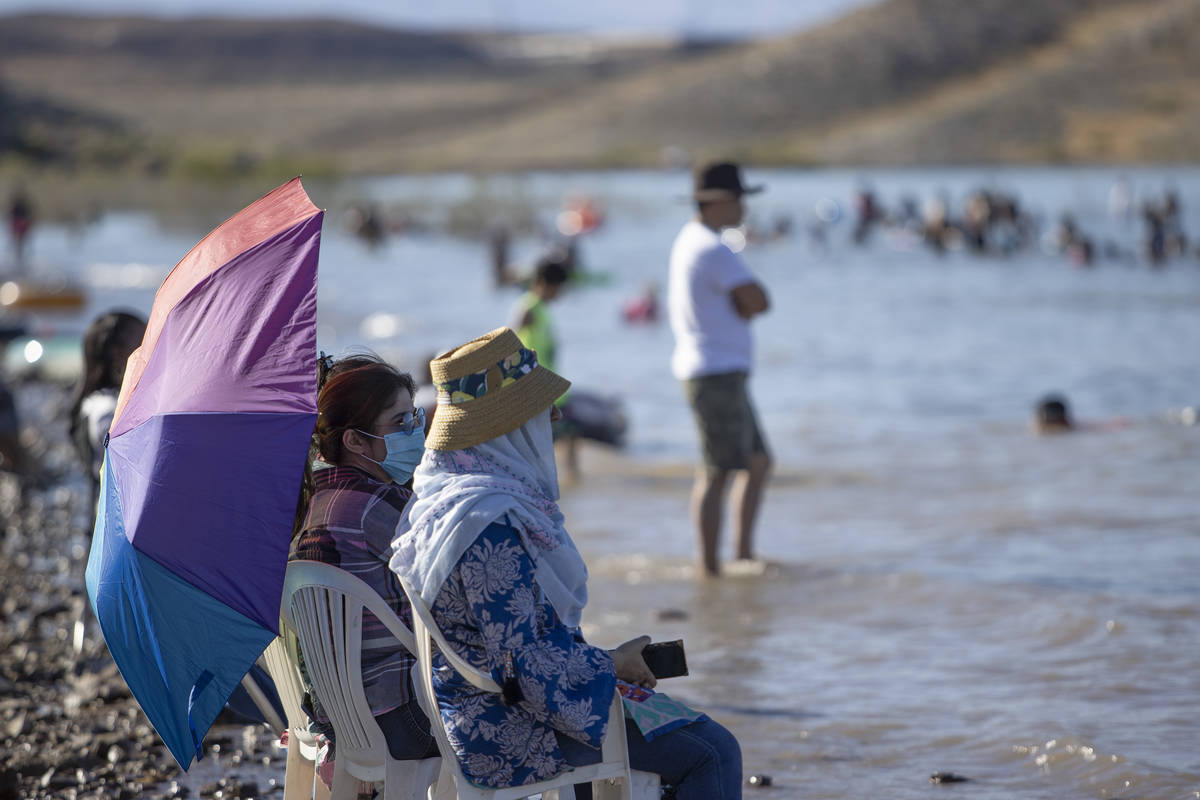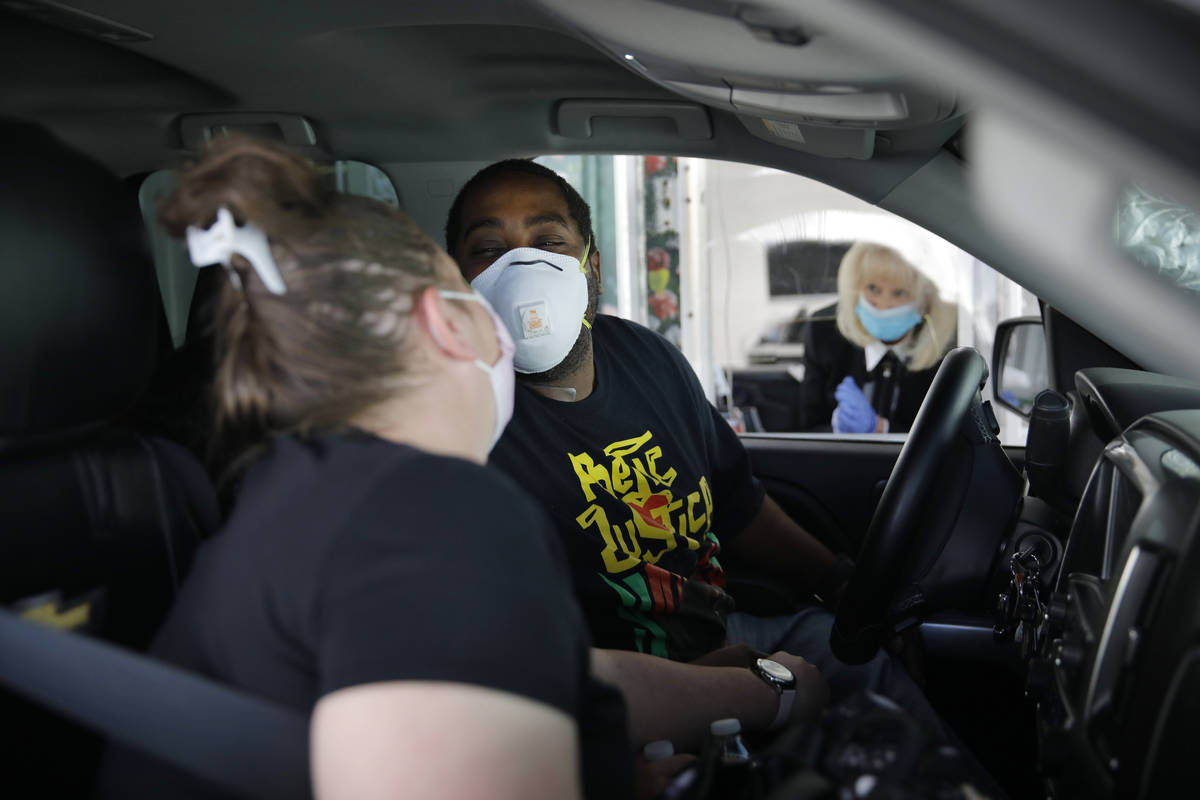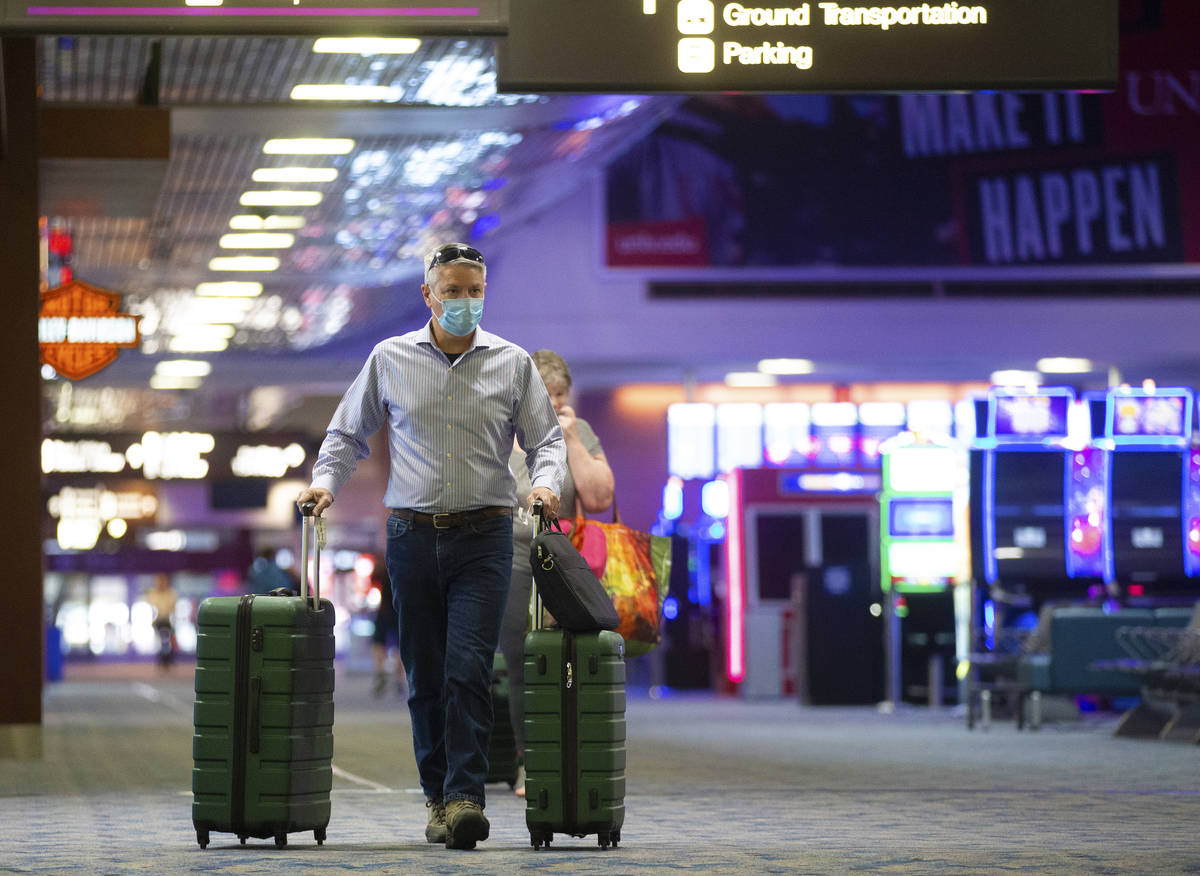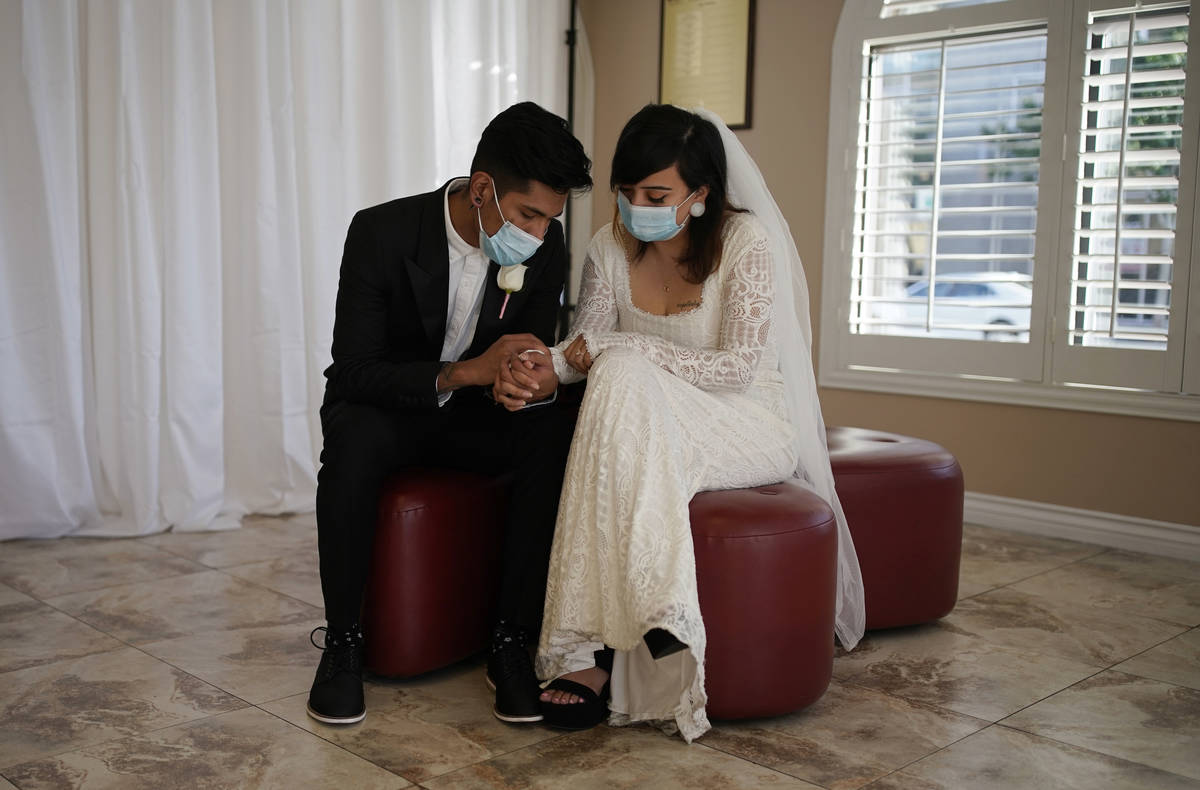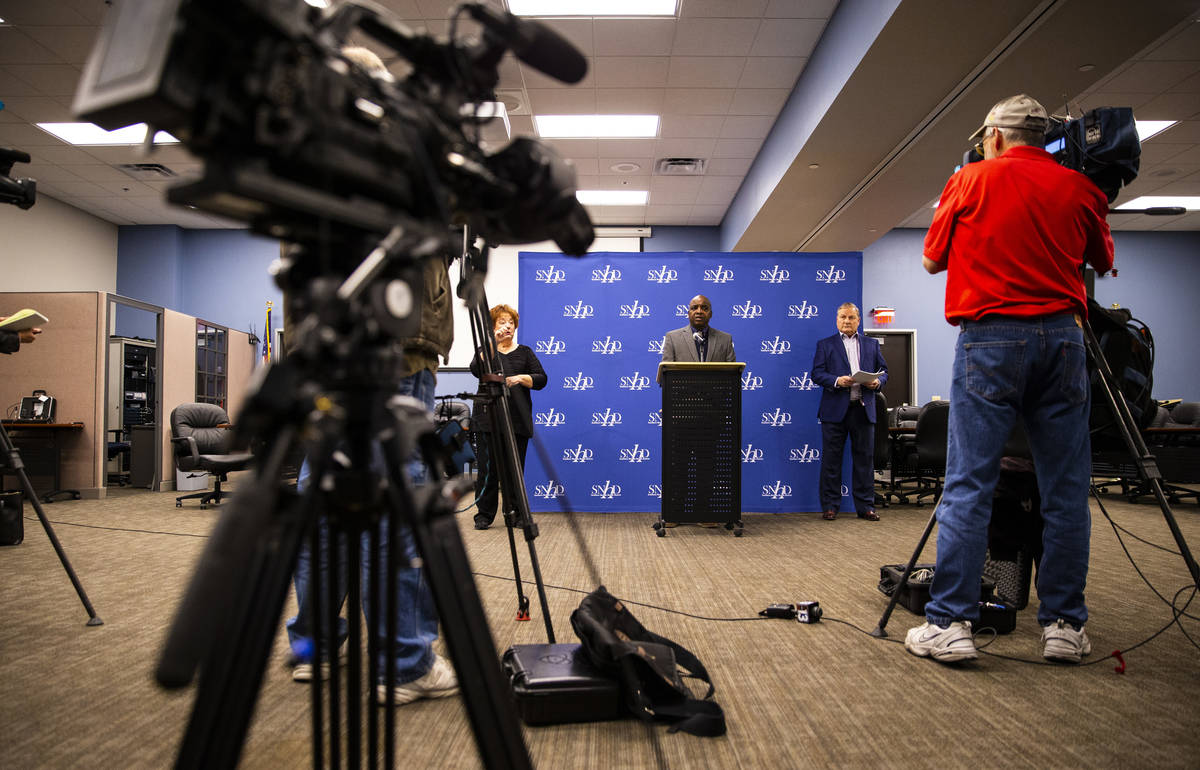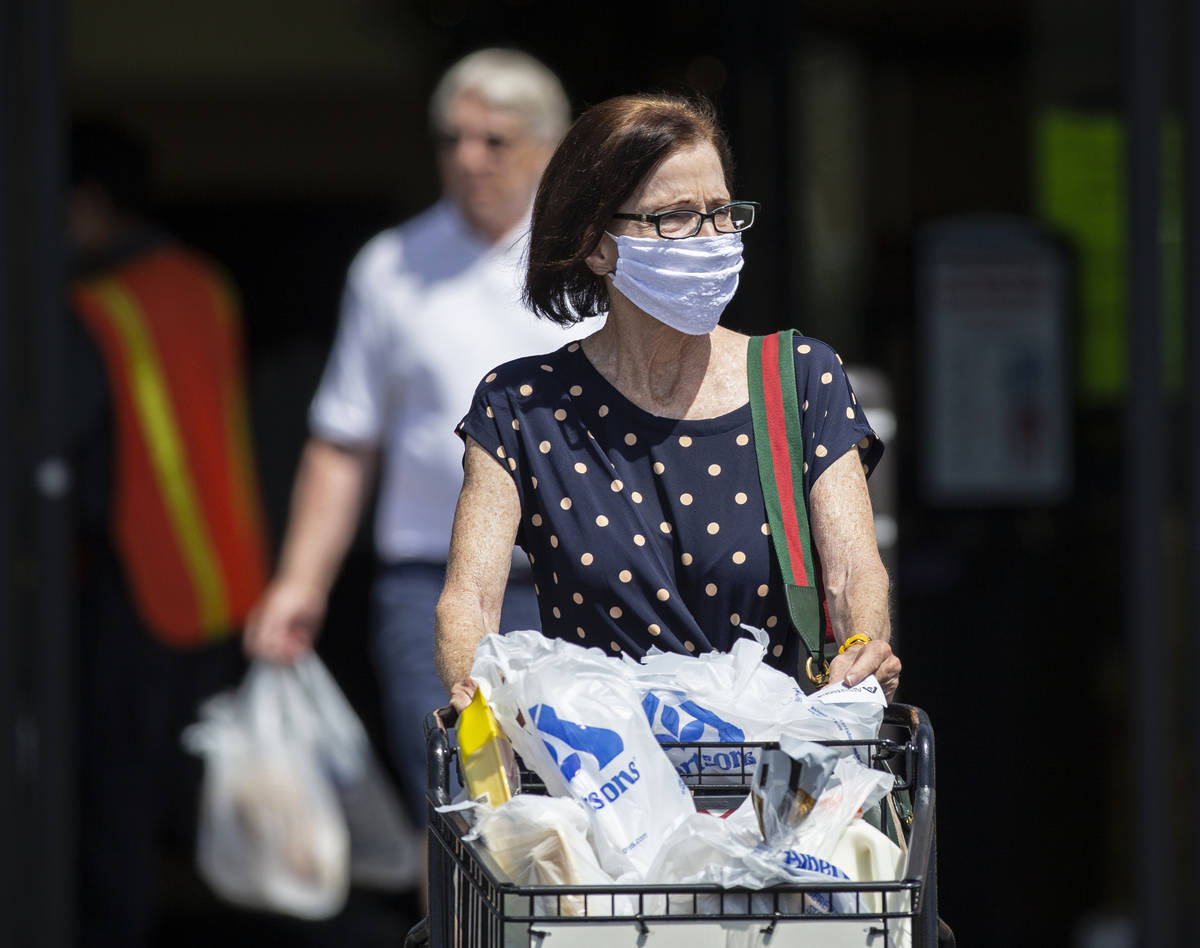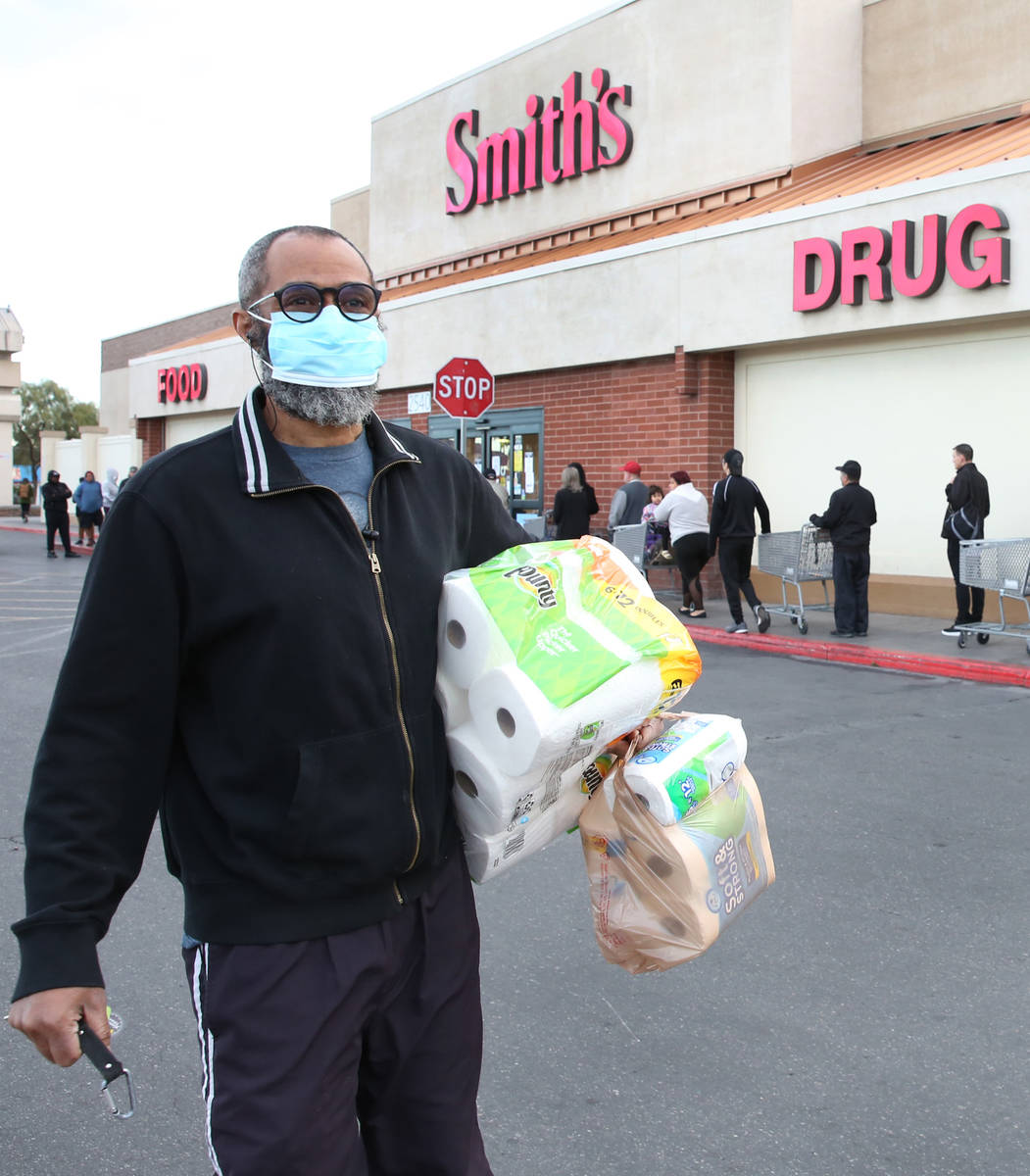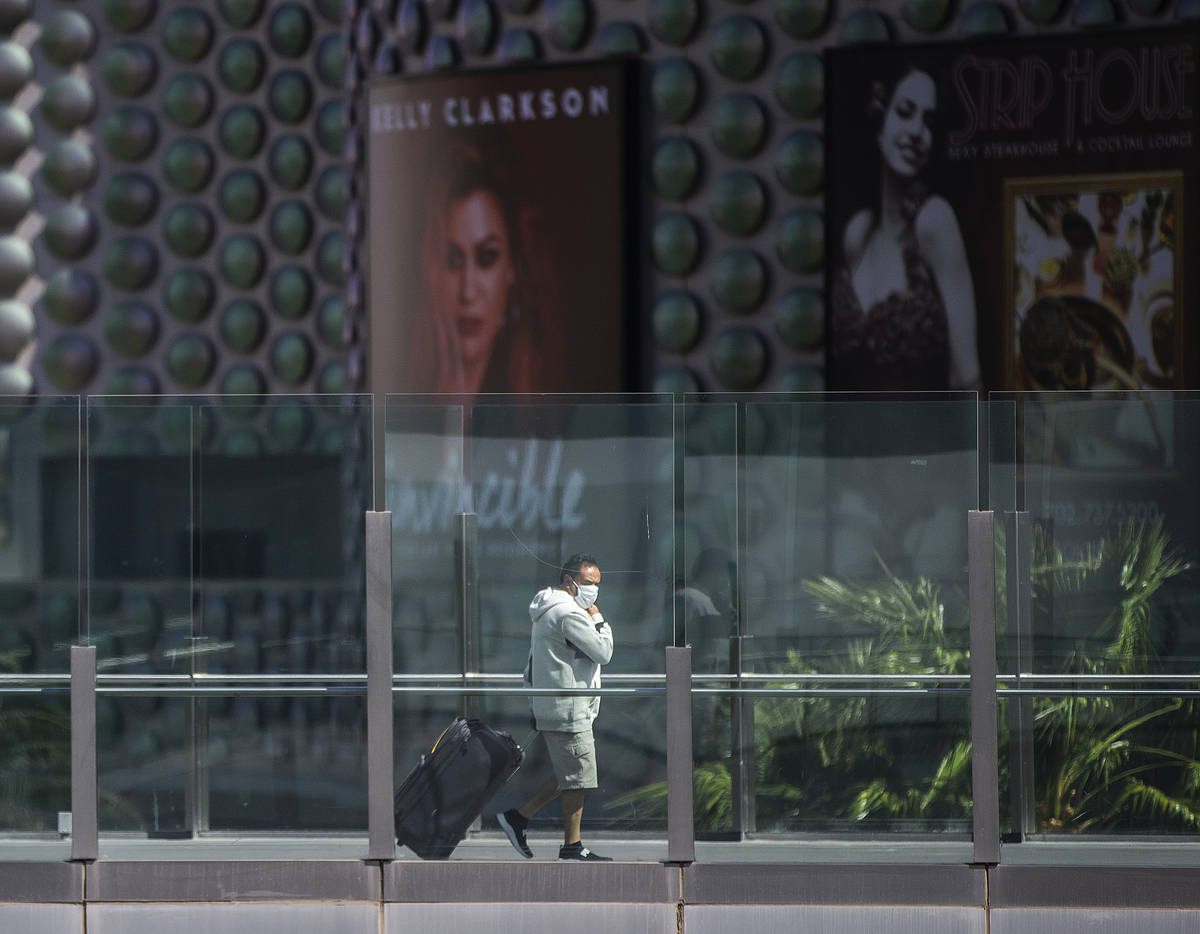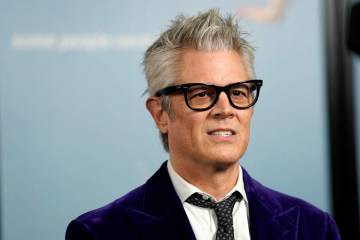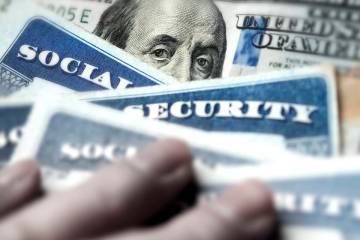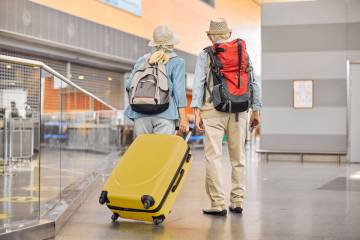Wearing a face mask becomes lightning rod issue in COVID-19 era
Danielle Richards was taking packages out of her car recently, wearing a face mask as she always does in public these days.
But Richards, a psychology professor in the College of Southern Nevada’s Department of Human Behavior, was startled when a stranger passing by who wasn’t wearing a mask “just burst out laughing at me” — mocking her, she believes, for wearing the face covering.
It’s a sign of these COVID-19 times, whether encapsulated in one unnerving roadside encounter or recorded in videos of mask wearer/non-wearer confrontations that are popping up on social media. Those few square inches of fabric are becoming both symbolic and inflammatory, as well as fodder for a pressing ethical question:
If wearing a face mask might save somebody’s life by preventing them from contracting COVID-19, isn’t it just the ethical thing to do?
It’s a loaded question that involves such issues as individual rights and shared responsibility. But for Wonyong Oh, a professor in UNLV’s Lee Business School, it’s a slam-dunk call.
“In most ethics questions, there is no right or wrong answer,” Oh says. “But I think this one has a clear answer.”
Masks help prevent others from being infected with the coronavirus, including by people who show no symptoms. So, Oh says, wearing a mask is the right thing to do to protect others.
“We see that some people see wearing masks as infringement of their own freedom,” he adds. “I agree that everyone should have a right to act freely. But no one has a right to put others in danger simply because you feel a little uncomfortable.”
Still, a trip to any supermarket will reveal that Oh’s opinion isn’t universally shared. The inconvenience and discomfort of wearing a mask can figure into someone’s decision not to wear it, and so can the “excessive individualism of American culture: Don’t tell me what to do,” said Michael Ian Borer, an associate professor of sociology and director of religious studies at UNLV.
Mixed messaging about the necessity of wearing a mask also plays a part, Richards says, dating back to the early days of the quarantine “when we were advised to not wear masks and then were told to.”
“Cohesive social norms on mask wearing are still in the process of evolving,” she says, and guidance from experts has been changing rapidly.
Deciding whether to follow health officials’ entreaties to wear a mask in public also can be influenced by our personality type, Richards says, and Dr. Mitchell Forman says we also tend to filter the decision through the lens of politics or political leaders.
For example, President Donald Trump has publicly voiced his aversion to wearing a mask, says Forman, a rheumatologist with the UNLV School of Medicine. “How can you believe what the CDC says when the most prominent persons in government don’t wear a mask in meetings or going to visit organizations or plants?”
People may simply be uninformed about how the minor inconvenience of wearing a mask potentially can protect others. “I’m all for freedom, yours and mine,” says Dr. Wolfgang Gilliar, dean of Touro University Nevada College of Osteopathic Medicine. “I wear a mask so that we can all be safe.”
Ultimately, Richards says, the decision to wear or not wear a mask arises out of “a combination of our own personal associations, good or bad, with masks,” as well as “modeling from the political leaders we see.”
Ideally, solid health and medical information would be included in that mix, too. But, Gilliar says, masks have “become politicized.”
“It comes down to a very sensitive political nerve that strikes with some people. They just don’t like to, quote, be told what to do. Then it becomes the focus of, the government is telling me what to do and I’m not willing to do that. How do you have the right to tell me how to breathe?”
So is not wearing a mask in public unethical? The Rev. J. Barry Vaughn, rector of Christ Church Episcopal, would go even further. If someone were not to wear a mask, he says, “I would say that they’re acting immorally.”
“Certainly they are acting irresponsibly,” he adds. “It is a moral choice we are making, a decision for or against caring for ourselves and others.”
“I’m not an ethicist, but I think there is an ethical imperative (that) if you can do something to help others, you should do it,” Borer says. “The only thing that seems to be hurt is, it hurts people’s egos.”
Rather than denoting weakness, he says, wearing a mask is “a sign of compassion, a sign of consideration to your fellow human beings.”
Contact John Przybys at jprzybys@reviewjournal.com. Follow @JJPrzybys on Twitter.
Related
A century ago, not wearing a mask in Las Vegas could draw a fine



